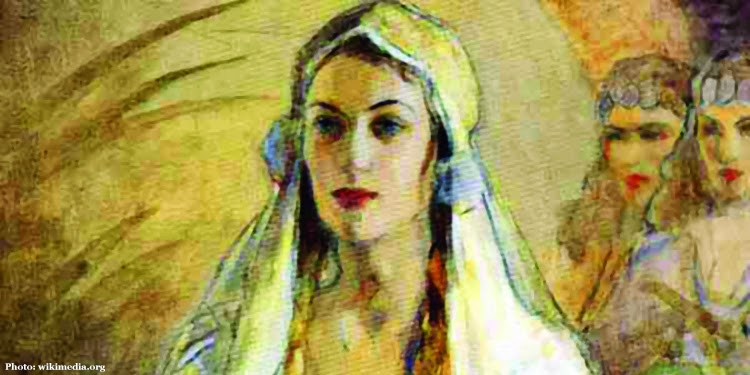Risking Their Lives for Others
Yael Eckstein | March 7, 2023

“I will go to the king, even though it is against the law. And if I perish, I perish.” —Esther 4:16
This month, my family and I will join Jews around the world in celebrating Purim, a joyous holiday that commemorates the story of Queen Esther and her courageous stand that saved her people, the Persian Jews, from annihilation.
During the Holocaust in Europe, when the Jews faced annihilation, there were brave souls, many of them Christians, who recognized that they had an opportunity to make a difference — and they seized the moment and acted. These heroes are known to us as the “Righteous Gentiles,” non-Jews who risked their own lives to save Jewish lives.
These men and women, many of whom were Christians, rescued Jews by offering them a place to hide, providing them with false papers and identities, smuggling and assisting Jews to escape, and saving children. And they often paid for their heroism with their lives.
One little-known example is the people of Le Chambon-sur-Lignon, a Protestant village in southern France. Under the leadership of their pastor, André Trocmé, and his wife, Magda, the people of Le Chambon offered a haven for Jews fleeing from the Nazis.
“Things had to be done, and we happened to be there to do them. It was the most natural thing in the world to help these people,” residents of the town later said.
The people of Le Chambon understood the needs of the moment in which they found themselves and acted, risking their own lives for the sake of others.
Risking Their Lives for Others
In the Purim story recorded in the Book of Esther, we read about Mordecai pleading with Queen Esther to intervene on behalf of the Jews before her husband, King Xerxes. Mordecai had uncovered Haman’s genocidal plot against all the Jews of the Persian empire and wanted his cousin Esther to approach the king and ask for mercy for the Jews.
Esther was faced with a dangerous dilemma. If she refused to say anything, the Jewish people would surely perish. If she did speak up, however, she risked her own life, since entering the king’s presence without being called for could mean death. But Esther didn’t hesitate. She told Mordecai, “I will go to the king, even though it is against the law. And if I perish, I perish.”
Both Mordecai and Esther recognized that they had been placed in a unique position to save the Jewish people. They could have walked away from it. They could have decided to save themselves. But they saw they had an opportunity to make a difference, and they seized the moment and acted, risking their lives for others.
Indeed, as Jesus taught in the Christian Bible, “Greater love has no one than this: to lay down one’s life for one’s friends” (John 15:13).
Your Turn:
Even when we are not directly affected, we must make a commitment to stand against injustice, anti-Semitism, and prejudice wherever they rear their heads. We can make a difference if we have the courage to respond to the moment and act.
